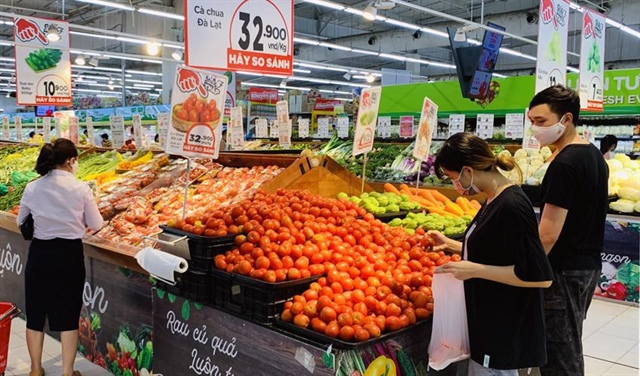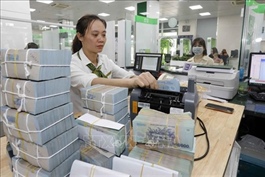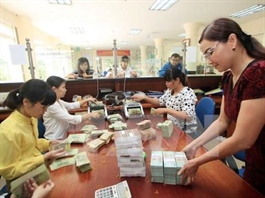Vietnamese Government considers extending VAT reduction to mid-2024
Vietnamese Government considers extending VAT reduction to mid-2024
The extension will result in individuals' savings in spending and living expenses, potentially stimulating demand and boosting consumption.
The Government has tasked the Ministry of Finance (MoF) with conducting a review and submitting a proposal to the National Assembly to extend the 2% VAT reduction for another six months until mid-2024.

Locals at a supermarket. Photo: The Hanoi Times |
The move followed the Government's assessment that the macroeconomy remains stable and inflation is under control. In the first nine months, economic growth reached 4.24%, with the third quarter alone showing an increase of 5.33% over the same period last year.
Vietnam is categorized among the fastest-growing nations in the region and the world, the government said in a report.
Nevertheless, the economy continues to confront challenges due to intricate and unpredictable global developments. The Government continues to focus on three growth drivers: exports, public investment, and consumption, as it strives to achieve the highest possible growth rate this year.
The MoF has been tasked with ensuring that budget revenues meet the targets set by the National Assembly while implementing measures to prevent tax losses.
Additionally, the ministry is assigned to review and propose to the National Assembly an extension of the 2% VAT reduction period until mid-2024, instead of ending it at the end of this year, to support businesses and the general population.
The detailed proposal should be submitted to the Prime Minister before October 7 and to the National Assembly during its upcoming session.
The 2% reduction in VAT began on July 1 and applies to goods and services currently taxed at 10% and will continue until the end of this year, as stipulated in the National Assembly's Resolution.
VAT, unlike other taxes, is characterized by the fact that the tax burden is shared between businesses and consumers, so a reduction benefits both parties.
At the government meeting on September 30, Minister of Planning and Investment Nguyen Chi Dung proposed extending the VAT reduction period until mid-2024 due to ongoing economic challenges. If approved by the relevant authorities, this extension will result in savings for individuals in their spending and living expenses, potentially stimulating demand and boosting consumption.
In addition, the MoF has also been asked to study a 50% reduction in fees or providing free online public services until the conclusion of 2025.
As for the Ministry of Industry and Trade, the government has taken note of supply solutions to avert shortages of electricity, gasoline, and oil, and will soon propose to the relevant authorities a policy mechanism to encourage the development of self-produced and self-consumed rooftop solar power, along with a mechanism for the Direct Power Purchase Agreement (DPPA).


























